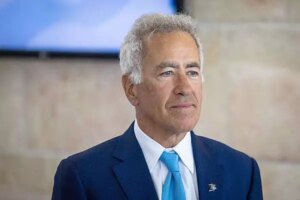
Shafaq News
World Humanitarian Day (WHD) is marked each year on August 19 in honor
of aid workers and people affected by crises. The date was chosen after the
2003 bombing of the United Nations headquarters at Baghdad’s Canal Hotel, which
killed 22 staff members, including Special Representative Sergio Vieira de
Mello.
More than two decades later, Iraq stands at a transitional stage—no
longer an international emergency, but still facing protracted displacement,
explosive hazards, and climate-related challenges that require sustained
assistance.
From Conflict Response to Transition
Iraq’s humanitarian profile has changed sharply since the defeat of
ISIS. Emergency needs have decreased, and the government is gradually resuming
full responsibility. The UN Security Council this year extended the UN
Assistance Mission for Iraq (UNAMI) for a final term until December 31, 2025,
marking a shift from international political oversight toward nationally led
stabilization and services.
“The United Nations will continue supporting Iraq even after the mandate
of UNAMI concludes at the end of 2025,” UN representative Mohamed al-Hassan
said on Tuesday.
While UNAMI’s political mission winds down, UN agencies will continue
their development and humanitarian programs. The Canal Hotel attack, which gave
rise to WHD, also reshaped global security standards for aid operations, making
Iraq central to how the UN manages risks in complex environments.
Smaller Emergencies, Persistent Risks
According to UNHCR, Iraq still hosts about 1.03 million internally
displaced persons (IDPs) and more than 340,000 refugees and asylum seekers,
mostly in the Kurdistan Region of Iraq (KRI). Around 109,000 IDPs remain in 21
camps in the Region, while others live outside camps, often struggling with
poor services and limited access to legal documents.
Displacement today is not only a legacy of conflict. The International
Organization for Migration (IOM) reports that by March 2025, climate pressures
such as drought and water salinization had displaced nearly 172,000 people
across central and southern provinces. Most relocated within their home provinces,
often into urban centers where services are already strained.
Ahmed Abbas, a herder from al-Chibayish in the southern marshes, told
Shafaq News his family had little choice but to move. “We left al-Chibayish
after the marshes dried up and the water turned saline,” he said. “We came to
Al-Nasiriyah in search of fresh water, but conditions here are just as bad. The
water is still salty, and our animals are suffering.”
Mine contamination also continues to hinder recovery. In the first half
of 2025, the UN Mine Action Service (UNMAS) cleared more than 7,400 explosive
remnants of war and nearly 400 improvised explosive devices in Nineveh Province
alone, enabling safer returns and reconstruction.
Fadel al-Gharawi, head of Iraq’s Strategic Center for Human Rights, told
Shafaq News that more than 6,600 square kilometers of Iraqi land have been
identified as mine-contaminated since 2003.
“While over 4,540 square kilometers have been cleared as of 2024, more
than 2,000 square kilometers still require demining,” he said, noting that
“Basra is the most affected province, with approximately 1,200 square
kilometers of contaminated land, followed by Muthanna and Diyala.”
Aid Worker Security and Shrinking Funds
Two decades after the Canal Hotel bombing, Iraq remains a complex
operating environment for aid organizations. While attacks on international
staff have fallen sharply since the height of the conflict, aid groups report
occasional restrictions and security incidents that keep Iraq classified as a
medium-risk posting compared to other active warzones.
At the same time, humanitarian budgets are under strain. According to
the UN’s Financial Tracking Service, Iraq’s 2025 Humanitarian Response Plan
remains less than 40 percent funded, placing programs for displaced families in
competition with larger crises worldwide. The UN estimates that more than 300
million people globally need assistance this year, with available funding far
below requirements.
National Lead, Local Partnerships
Baghdad views UNAMI’s closure as recognition of stability but stresses
the importance of ongoing cooperation with UN agencies. Humanitarian groups
emphasize that targeted aid remains essential for vulnerable populations,
including Yazidis and other minorities, families with alleged ISIS ties who
face legal obstacles, and households newly displaced by climate change.
Local civil society organizations are also expanding their role. Iraqi
NGOs now manage water trucking, school rehabilitation, and documentation
support in many return areas, bridging gaps as international agencies scale
back. Aid officials stress that building the capacity of these local groups is
essential for sustaining services once international footprints diminish
further.
Twenty-two years after the Canal Hotel attack, Iraq embodies the dual
message of World Humanitarian Day: honoring aid workers lost in 2003 while
underscoring that humanitarian support must evolve with changing risks and
needs.
Written and edited by Shafaq News staff.





